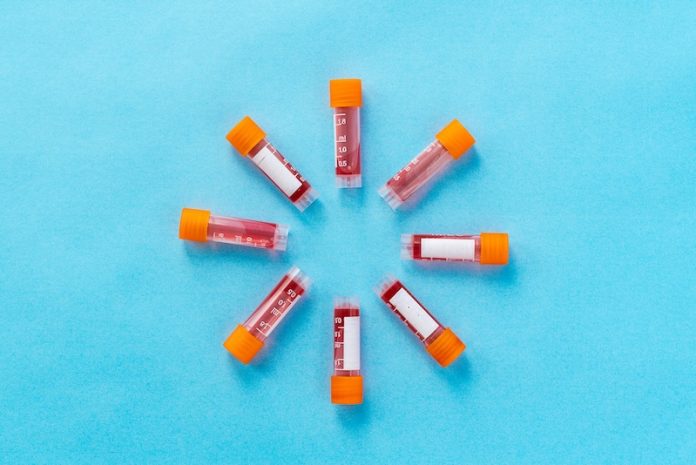
Pancreatic cancer is one of the deadliest cancers in the world, mostly because it is usually found too late.
By the time symptoms appear and doctors diagnose it, the disease has often already spread. At that point, treatment becomes harder and less effective.
But now, scientists at Oregon Health & Science University (OHSU) may have found a way to detect it earlier using a new type of blood test.
This new test is called PAC-MANN, which stands for “protease activity-based assay using a magnetic nanosensor.” It may sound complicated, but the basic idea is simple: it looks for early signs of pancreatic cancer in a small blood sample.
The test works by detecting specific proteins in the blood, called proteases, that become more active when someone has pancreatic ductal adenocarcinoma (PDAC). PDAC is the most common and aggressive form of pancreatic cancer.
The current method for checking pancreatic cancer in the blood is a test called CA 19-9. While this test can help doctors understand how the disease is progressing, it is not very good at finding cancer in its early stages.
This is where PAC-MANN could make a big difference. It offers a way to find the disease much earlier—when treatment can be more effective and survival chances are better.
Jared Fischer, one of the lead researchers on this project, explained that their main goal was to give doctors a better tool for finding pancreatic cancer early. Fischer is a professor at OHSU and works with the university’s cancer research team. He said that catching cancer early means more options for treatment and more hope for patients.
The study was published in the journal Science Translational Medicine. It was led by Jose L. Montoya Mira, a research engineer at OHSU. Montoya helped design the test to be affordable, fast, and easy to use in many different locations, not just big hospitals.
Unlike some other methods, PAC-MANN doesn’t need a lot of blood and doesn’t involve painful procedures like inserting a camera into the body.
To test PAC-MANN, the research team used blood samples from 350 people. Some had pancreatic cancer, some were at high risk of developing it, and some were healthy. The test was able to correctly identify people with pancreatic cancer 98% of the time.
When used together with the older CA 19-9 test, PAC-MANN was able to spot early-stage cancer with 85% accuracy. This is a big improvement in the fight against this hard-to-detect disease.
Another exciting finding is that PAC-MANN can help doctors monitor how well a treatment is working. After patients had surgery to remove the cancer, their levels of protease activity went down. This means the test could be useful not just for detection but also for checking if treatment is working or if the cancer comes back.
One of the most impressive things about PAC-MANN is how cheap and fast it is. The test uses only a tiny drop of blood—just 8 microliters—and takes only 45 minutes to complete. Even better, it costs less than one cent per test. This means it could be used in rural clinics and smaller medical centers, where more expensive tools aren’t available.
The research team is now planning more studies to test PAC-MANN in larger groups of people, especially those at high risk of pancreatic cancer. If future tests confirm its success, PAC-MANN could become a key tool for saving lives.
In conclusion, this new test could bring major changes in how doctors detect and treat pancreatic cancer. By catching the disease early and making testing easier and cheaper, PAC-MANN offers new hope in the fight against one of the toughest cancers.
If you care about cancer, please read studies that low-carb diet could increase overall cancer risk, and new way to increase the longevity of cancer survivors.
For more health information, please see recent studies about how to fight cancer with these anti-cancer superfoods, and results showing daily vitamin D3 supplementation may reduce cancer death risk.
The study findings can be found in Science Translational Medicine.
Copyright © 2025 Knowridge Science Report. All rights reserved.



